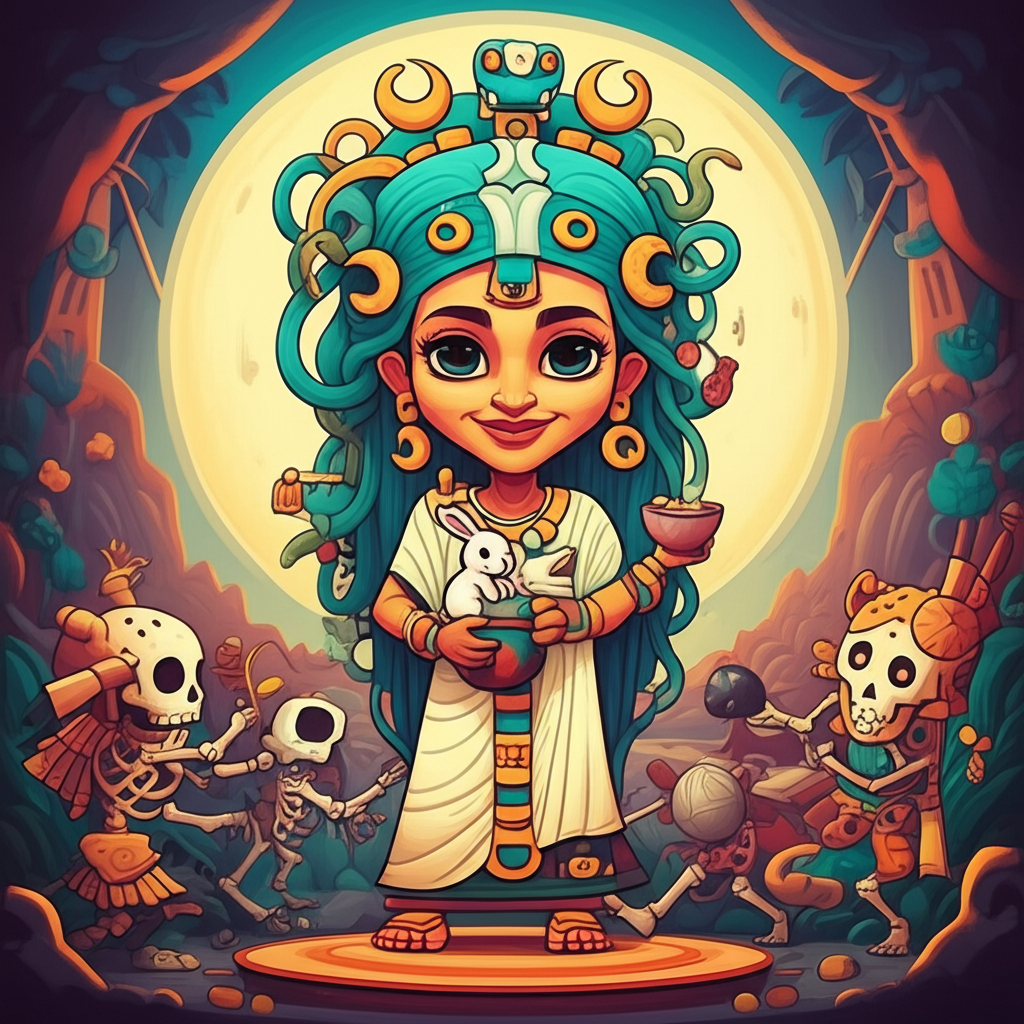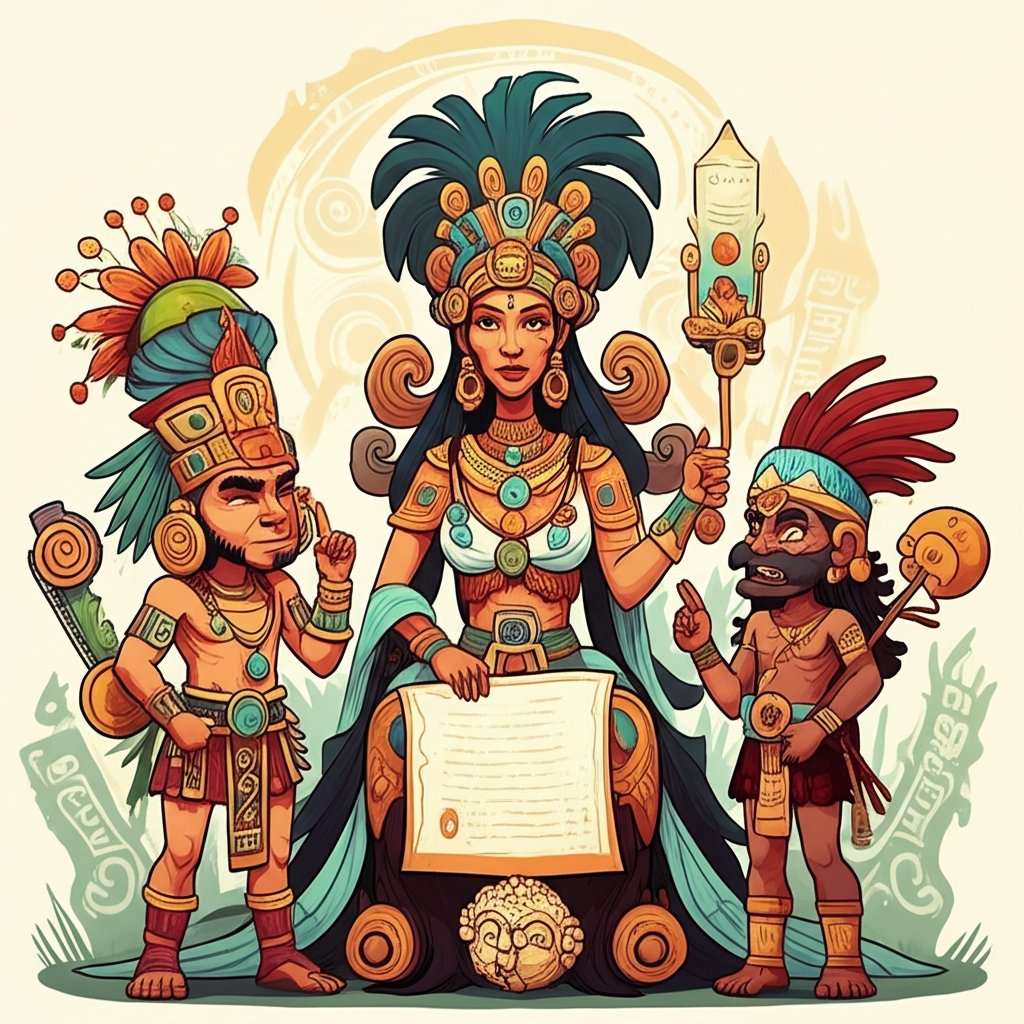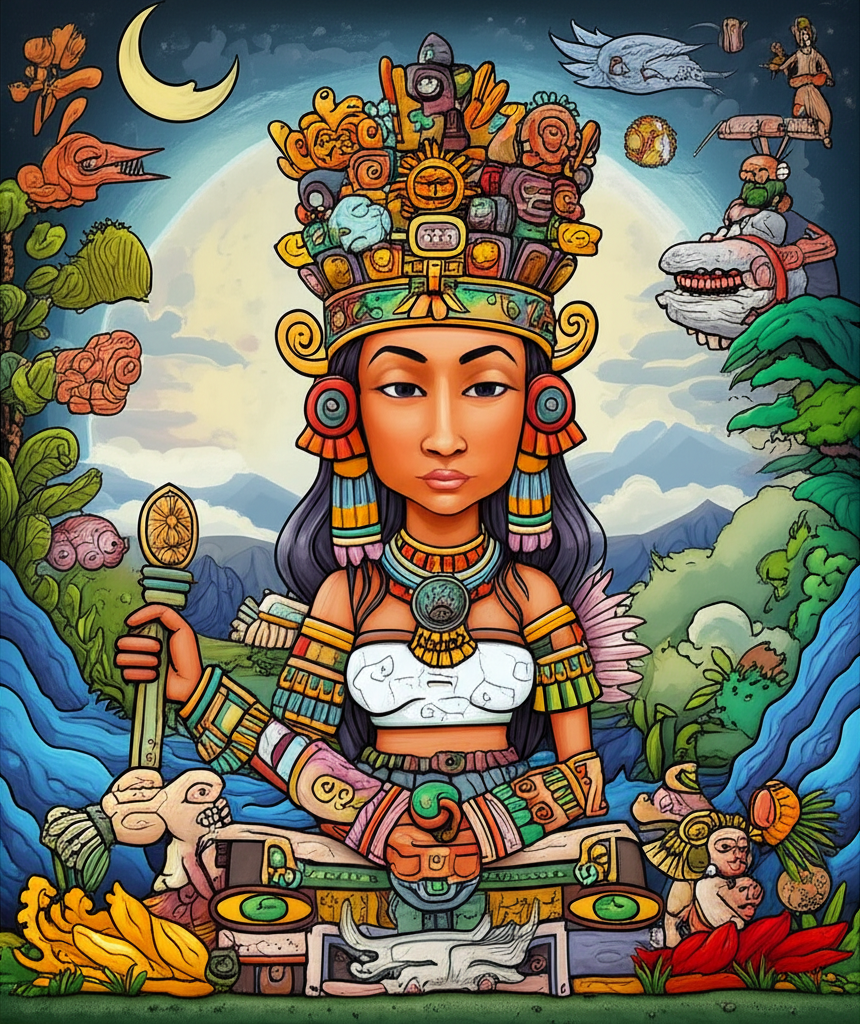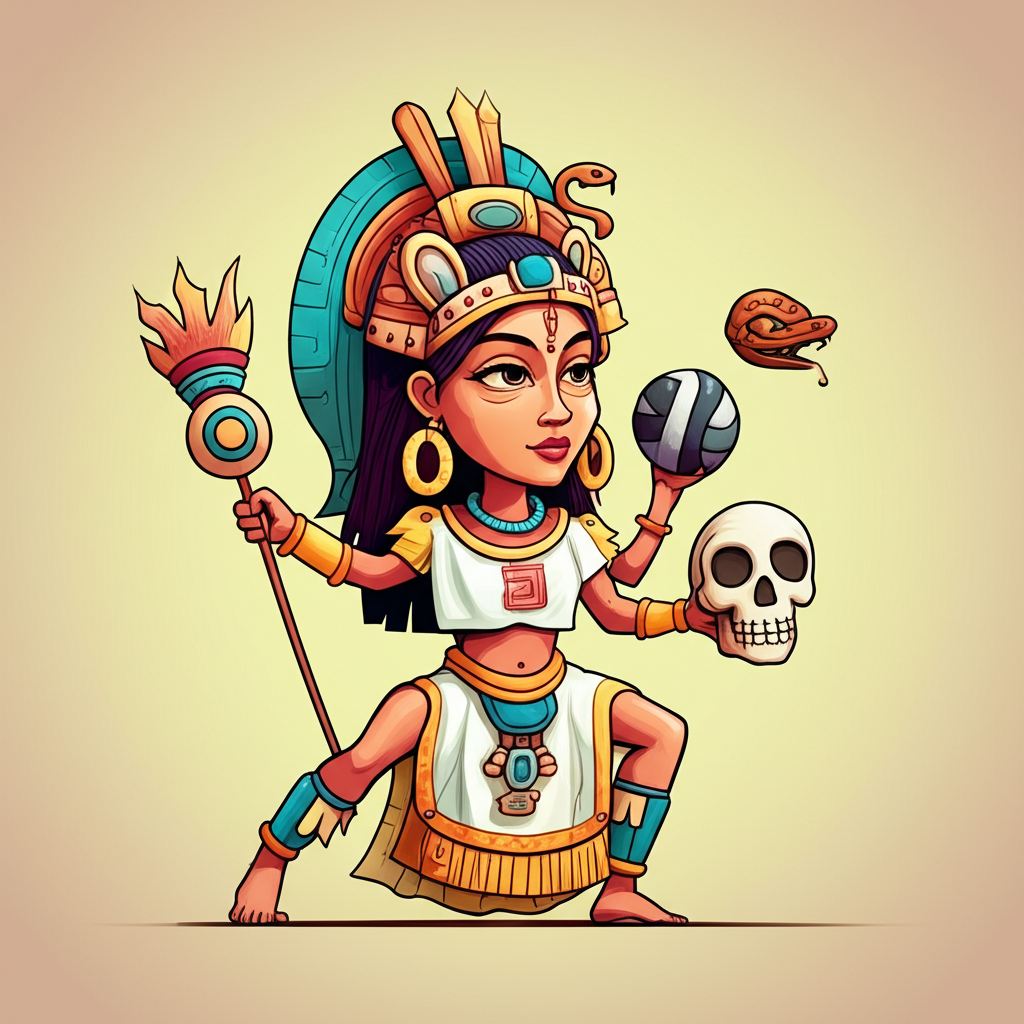In the rich tapestry of West African folklore, particularly within the traditions of the Akan people of Ghana, a captivating figure emerges from the mists of ancient storytelling: Anansi the Spider. He is not a god, nor a divine entity, but a trickster, a creator of stories, and a weaver of wisdom, often portrayed as a small, unassuming spider with an outsized intellect and an insatiable curiosity. This is a traditional story, passed down through generations, a testament to the imagination of ancient peoples and their way of understanding the world around them.
The myths of Anansi are deeply rooted in a time when the natural world was seen as alive with spirits and hidden meanings. The dense rainforests of West Africa, teeming with life and mystery, provided the backdrop for these narratives. For the people who lived there, the sun’s journey across the sky, the rustling of leaves, the changing seasons, and the behavior of animals were not mere occurrences but imbued with significance, often interpreted through the lens of the divine and the supernatural. In this worldview, where the boundaries between the earthly and the spiritual were permeable, stories served as vital tools for explaining the inexplicable, teaching moral lessons, and navigating the complexities of life. It was within this fertile ground of belief and observation that the legend of Anansi’s Divination Bowl took root.
Anansi, the central figure of this tale, is a fascinating character. He is depicted as a spider, a creature known for its patience, its intricate webs, and its ability to capture prey through cunning rather than brute force. These attributes are not accidental; they are symbolic. Anansi’s ability to weave intricate webs can be seen as representing the interconnectedness of all things, the way events and actions are linked together. His small size, juxtaposed with his immense cleverness, highlights the idea that intelligence and resourcefulness can triumph over physical strength. He is a trickster, yes, but his tricks are often aimed at acquiring knowledge, proving his wit, or teaching a lesson, albeit in a sometimes unconventional manner. His symbolic role is that of a clever intermediary, a bridge between the human world and the realm of deeper understanding.
The narrative of Anansi and the Divination Bowl unfolds with Anansi, as was his wont, seeking to acquire something precious. In this particular story, he hears whispers of a magnificent bowl, a vessel said to hold the secrets of the future, capable of revealing what was to come. This bowl, it was said, was a gift from the sky beings, a tool for those who wished to peer beyond the veil of the present. Anansi, ever eager for knowledge and the prestige it brought, set his sights on obtaining this artifact.
He embarked on a perilous journey, facing challenges that tested his cunning and his resolve. He outsmarted formidable creatures, navigated treacherous landscapes, and engaged in clever exchanges, using his wit and his storytelling prowess to his advantage. One version of the tale recounts how he traded his knowledge of stories, his very essence, to Nyame, the Sky God, in exchange for the Divination Bowl. Nyame, impressed by Anansi’s audacity and his deep desire for wisdom, bestowed upon him the bowl. However, the gift came with a caveat: the bowl was not to be used for selfish gain or to manipulate others, but for the benefit of all.
Anansi, now in possession of this powerful artifact, did not hoard its secrets. Instead, he would hold gatherings, inviting villagers to gaze into the bowl. As they looked, the shimmering surface would reveal glimpses of what lay ahead – the coming of rain, the signs of a good harvest, the potential dangers lurking in the shadows, or the path to a prosperous future. The bowl, in their eyes, became a conduit to understanding the intricate dance of fate and fortune. Anansi, as the keeper of this knowledge, gained immense respect and influence. He was seen as the dispenser of foresight, the one who could guide his community through the uncertainties of life.
The symbolism embedded within the story of the Divination Bowl is profound. The bowl itself can be interpreted as representing wisdom, foresight, and the interconnectedness of events. The act of divination, of looking into the bowl, symbolizes humanity’s innate desire to understand the unknown, to seek guidance in the face of uncertainty, and to make sense of the world’s intricate workings. Anansi’s acquisition of the bowl, through wit and negotiation rather than divine right, underscores the Akan belief in the power of intelligence and resourcefulness. The condition attached to its use – for the benefit of all – speaks to a communal understanding of responsibility and the importance of using knowledge for the greater good, a concept central to many traditional societies.
In the modern world, the tale of Anansi and his Divination Bowl continues to resonate, albeit in different forms. Anansi himself has become a beloved character in children’s literature, animated films, and educational programs, a symbol of African storytelling and cultural heritage. His myths are studied in folklore departments and cultural studies programs, offering insights into the values, beliefs, and social structures of the Akan people. The concept of divination, while not practiced as a literal act of prophecy, finds echoes in modern tools of assessment, strategic planning, and even in the storytelling mediums of movies and games, where characters often seek hidden knowledge or predict future outcomes.
It is crucial to reiterate that the story of Anansi and his Divination Bowl is a traditional narrative, a product of ancient human imagination, shared for cultural and educational understanding. As Muslims, we recognize that only Allah is the true Creator and Sustainer of all existence, and that true knowledge of the unseen is solely with Him. These stories, however, offer a window into the rich cultural heritage of West Africa, a testament to the enduring power of storytelling to explain the world, impart wisdom, and inspire creativity. They remind us of the universal human quest for understanding and the diverse ways in which different cultures have sought to illuminate the mysteries of life through the magic of narrative. The legend of the Divination Bowl, like Anansi’s many tales, remains a vibrant thread in the rich tapestry of human culture, a reminder of our shared capacity for imagination and the stories that shape our understanding of the world.





